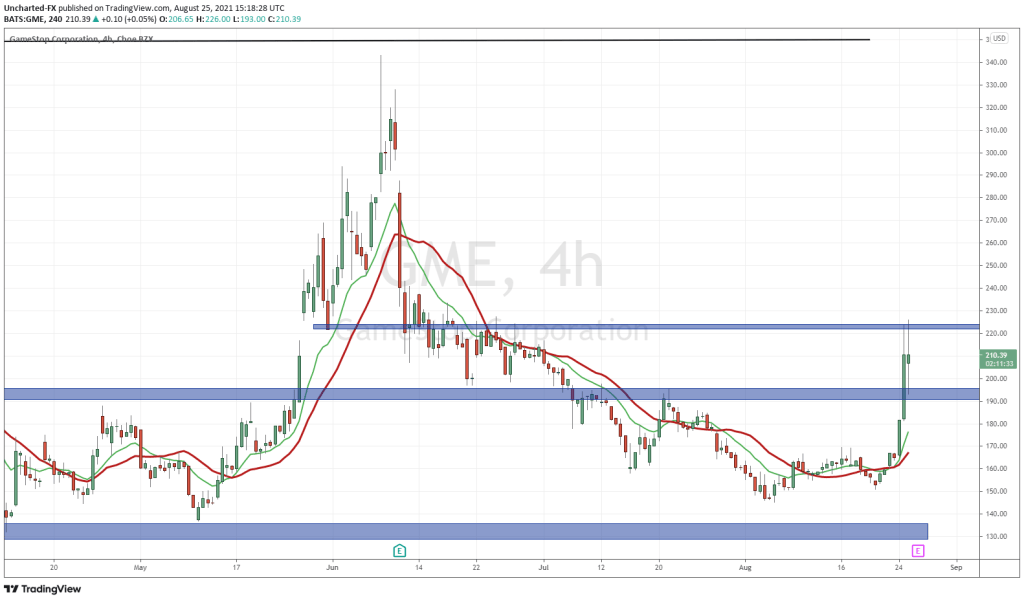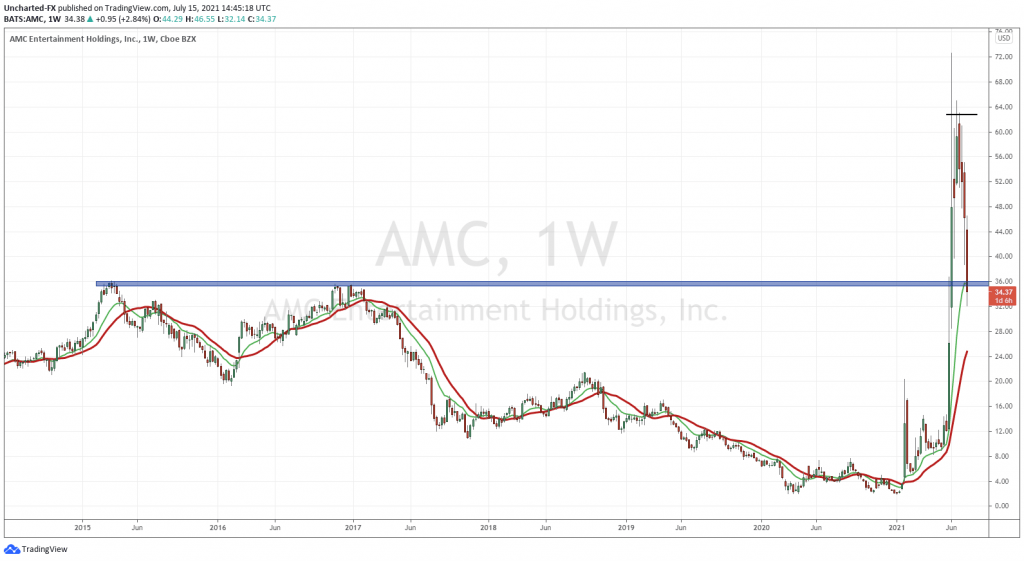My father recently told me that I talk things to death.
The type who aggressively argues the hypothetical and overuses the metaphor. Beating the dead horse, a skill I legitimately inherited from both parents, is my specialty. All this to say – everyone is now over the GameStop drama and has moved onto the next shiny, stupid thing. Whereas I, however, am still hung up. Because something important was left out of last week’s article – my most favorite something. To the point where I told a recent date that I wished I was a lesbian and if any backwards person ever needed living proof that sexuality is not a choice but rather biological determinism, I am it.
My most favorite something left out: women.
(And my boss can’t really say anything about it, because, as it goes, I’ll get hysterical).
(I am not even being facetious – I am the second most dramatic person I know and an expert in the self-righteous fit).
The GameStop story is inherently male-centric. It unfolded at the intersection of three male-dominated spheres: Reddit, video games and Wall Street. I spent much unfortunate time browsing the subreddit r/wallstreetbets this week; a space whose audience is pre-determined by its avatar of a white man with slicked-back blonde hair and sunglasses.
The feed is not only riddled with dense financial lingo, acronyms and a gross overuse of the spaceship emoji, but further serves up its fair helping of misogyny and racism. To me, it is a space that feels particularly inaccessible to women. I was feeling very Rory Gilmore (or Bob Woodward for those of you that just rolled your eyes at the Gilmore Girls reference) and requested a comment from the moderators of r/wallstreetbets on this matter…Shockingly, they have not responded.
Trading vs. Investing
In the pursuit of remaining educational rather than preachy, I will tell you why, financially speaking, women’s place (or lack thereof) in the GameStop story is important.
Last week, I wrote: “…if you take anything away from this article let it be this: Investing. Is. Not. Trading.”
Traders put money in a stock for the short term. They buy and sell quickly to hit the higher profits in the market. Missing the right time, evidently, leads to losses.
Investors, in turn, stay away from ‘trends’ and rather focus on value. They invest for a longer period of time and patiently wait out the ups and downs until the stock reaches its full potential. Investing is an action towards your future whereas trading is an action for expeditious result.
As we’ve all been taught from a young age about relationships and hot baths: good things take time. The thrill of the skinny boy in his basement making thousands off of a GameStop trade will always be counteracted by the disappointment of 100 others who lost out. The GameStop drama is a story of traders. A story of emotion, instability, and overarching monetary loss.
A story that may be the one exception: when being left out of the narrative is in fact, a win.
Proof.
The female field, and I say this with the backing of every study I could find on google, is that of investing. And investors historically experience a much higher rate of success than that of traders. In fact, a study that spanned from 1930-2012 compared the success of investments made by trust accounts (basically dead people), women’s accounts and men’s accounts. Over that period, men had the worst rate of return, women came in second and the trust accounts (basically dead people), first. This proves that long-term monetary gain is aided by more inaction than action.
In a Fidelity survey called “Women and Money”, fewer than 9% of respondents said they thought women were better investors than men (ew).
Yet the data suggests just the opposite.
In a study titled, “Boys Will Be Boys: Gender, Overconfidence, and Common Stock Investment,” researchers at Cal-Berkeley analyzed the common stock investments of men and women from over 35,000 households from February 1991 through January 1997. They found:
- Men traded 45% more frequently than women
- Women outperformed men by 0.94% per year
*Lest we forget that married women were not legally allowed to hold a credit card in their own name until the mid-1970s*
In more recent findings:
Fidelity conducted a study where over 8 million investment accounts were reviewed. Conclusion: women earned higher returns and were better savers.
The Warwick Business School surveyed 2,800 investors in 2018.
Conclusion: returns for female investing outperformed males by 1.8%
More Proof.
If the above hasn’t yet swayed you (why?), financial editor and writer LouAnn Lofton wrote a book titled: “Warren Buffett Invests Like a Girl”.
Lofton studied the habits of the world’s most renowned investor and compared them to the latest research about women, men and money. The conclusion: The Oracle of Omaha has a decidedly feminine investing style. Similar to Buffett, women are more likely to have a calm temperament, a longer-term outlook, trade less, do more research and remain steady under pressure, says Lofton.
And what does Buffett think about the claim?
“I plead guilty,” he said.
This is all to say, there is every valid reason to kick and scream about alpha males ruling Wall Street and misogynistic subreddit’s causing drastic market moves (and we well should). However, women, as per, have proven to be a gentle force. They are going about their business, quietly achieving better investment results sans ego and theatrics.
In playing the role of the “unbiased” journalist and to counteract my female-first tendencies, I have attached an informative video listing all good things about men.
Until next week.







